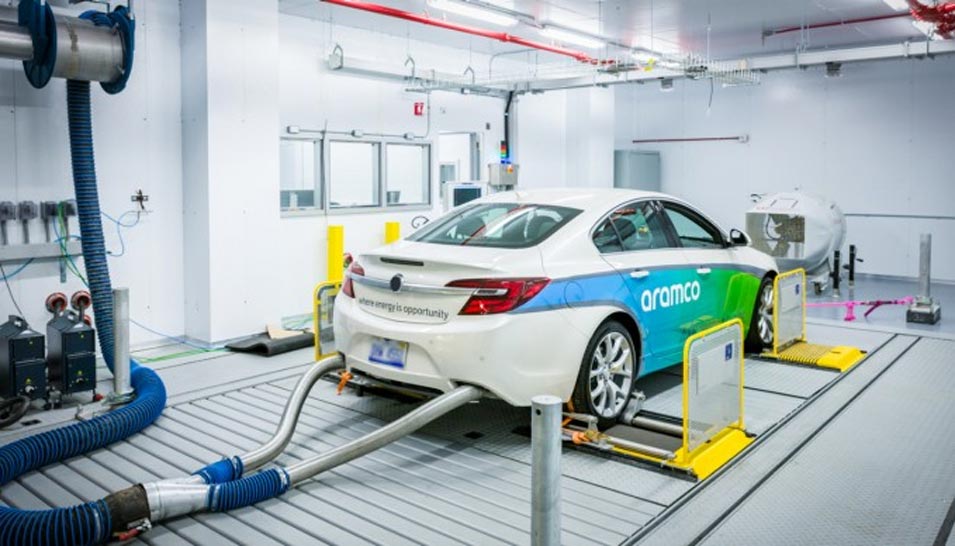
Saudi Aramco is participating at the North American International Auto Show (NAIAS) in Detroit, where it will be showcasing innovative technologies that have the potential to transform the internal combustion engine (ICE), greatly improving its efficiency and reducing its environmental impact.
Speaking ahead of the NAIAS, Saudi Aramco’s Chief Technology Officer, Ahmad Al Khowaiter, welcomed the opportunity to engage directly with the automobile industry and show attendees. “We’re proud to be a premier sponsor of the show, and look forward to exhibiting our innovative transport technologies,” Al Khowaiter said.
Saudi Aramco, along with leading automakers, is pursuing research programs to develop and prove novel fuel and engine solutions capable of creating significant competitive and environmental advantages.
“Electrification can play a role in addressing emissions. But the consensus is that ICEs will be prevalent for decades to come. Therefore, in the short- to medium-term, improving the ICE will yield the greatest benefits,” Al Khowaiter said. “By collaborating with sector leaders and innovators to develop advanced ICE technologies, Saudi Aramco is putting into action our commitment to simultaneously address global climate and mobility challenges.”
At the NAIAS, the company will demonstrate advanced ICE and enabling technologies including:
- Gasoline Compression Ignition (GCI): GCI delivers diesel-like efficiency with considerably lower emissions. The technology exploits gasoline-like fuels that ignite less readily, thereby enabling improved mixture formations prior to combustion.
- Octane-on-Demand (OoD): OoD improves fuel efficiency by using octane only when needed to match the specific requirements of the engine in real time.
- Opposed-Piston (OP) Engine: The OP engine is a novel design utilizing two pistons per cylinder, allowing for higher expansion ratio and significantly lower heat losses, which leads to superior efficiency.
- Mobile Carbon Capture: Mobile Carbon Capture contains emissions at the source through a redesigned exhaust system that captures CO2 and stores it on-board the vehicle. Captured CO2 has the potential to be used for a variety of commercial and industrial purposes.
Saudi Aramco’s global transport research network encompasses Aramco’s Research & Development Center in Dhahran, Saudi Arabia; a partnership with the Clean Combustion Research Center at the King Abdullah University of Science and Technology (KAUST) in Thuwal, Saudi Arabia; the Aramco Research Center in Detroit, MI; and the Aramco Fuel Research Center in Paris, France.